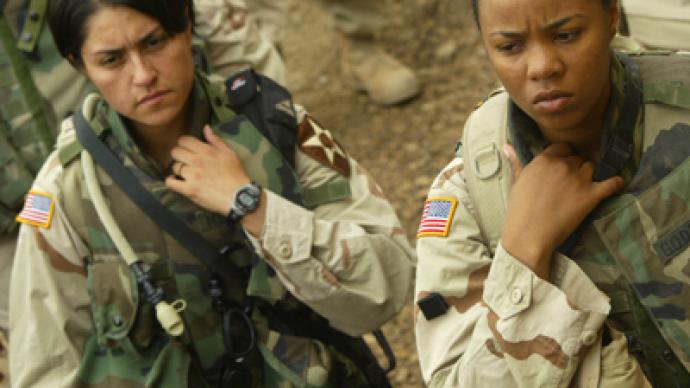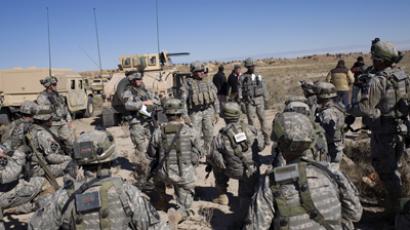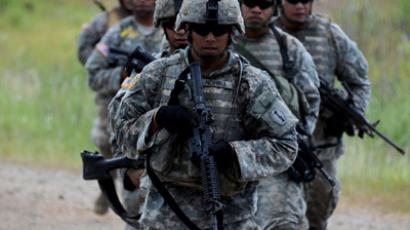Almost a quarter of female troops become victims of sex assaults in combat zones

Almost half of all US women deployed to Iraq or Afghanistan say they were sexually harassed, while nearly one-quarter claim they were sexually assaulted. The findings shed light on the additional stress military women face when they work abroad.
Research by the Department of Veterans Affairs shows that sexual misconduct is a much greater problem than previously believed, since the Pentagon asserts that few reports were filed alleging sexual assault.Only 115 such reports were filed in 2011, even though about 20,000 women were serving in Afghanistan in February. One of the study’s lead researchers, Amy Street, believes the data demonstrates an emotional cost of war that has hardly been considered.The “lion’s share of the attention… has focused on combat exposure,” she told USA Today.Of the 1,100 women who served in Iraq or Afghanistan and were surveyed by Street’s team, 48.6 percent admitted to being sexually harassed and 22.8 percent admitted to being sexually assaulted – and in some cases raped – while serving in a war zone.But regardless of the new findings, the Pentagon has not promised to take any action to tackle the problem of sexual misconduct. Nate Galbreath, a senior adviser for the Pentagon’s sexual assault prevention office, said that he is not assessing Street’s research until he learns more about how it was conducted.“It comes down to culture. (It) hasn’t changed, no matter what the generals or the secretaries of Defense say about zero tolerance,” California Rep. Jackie Speier told USA Today. “They have not scrubbed the sexism… out of the military.”Many of the women who reported sexual harassment allege that the perpetrators were US military men. Earlier this year, dozens of female recruits at an Air Force base in Texas said they were sexually assaulted by their male instructors, while an Army brigadier is being forced to appear in court for sexually assaulting lower-ranking women while serving in Iraq and Afghanistan. In Street’s study, 47 percent of women who suffered from sexual misconduct said the offenders held a higher rank.And the problem has been on the rise: reports of sexual assault at US military academics have increased from 65 in 2011 to 80 in 2012 – although most such cases seem to go unreported. The Pentagon estimated last year that the number of reports of sexual assaults on women is less than 20 percent of the number of actual incidents.“Women in the armed forced are now more likely to be assaulted by a fellow soldier than killed in combat,” Newsweek’s Jesse Ellison wrote last year.But even though the problem has long been known, little action has been done to tackle it and only six percent of cases lead to a conviction, causing the women to “suffer in silence”, The Huffington Post reported.While Secretary of Defense Leon Panetta has claimed a no-tolerance policy for sexual assaults in the military, Sgt. Rebekah Havrilla believes his promises have no meaning.“This whole concept of ‘zero tolerance’, it’s just words and no action,” she told The Huffington Post. The woman said that while the violence of war was brutal, she was most disturbed by the way the military men sexually harassed and assaulted her.“Suicide bombers in pieces, [people] pulling dead American soldiers out of Humvees – I have seen a lot of stuff people should never see,” she said. “It was part of my job; death was something I had to deal with. I never, ever thought I was gonna have to deal with my supporters being the ones that did the most damage.”During a one-year period between 2010 and 2011, the Pentagon received 3,192 reports of sexual assault, which equates to about 52 a day.The new study by the Department of Veteran Affairs simply brings forth more evidence of the problem of sexual assault in the US military, which is especially prevalent in war zones. The Pentagon has so far refused to comment on the survey results.














